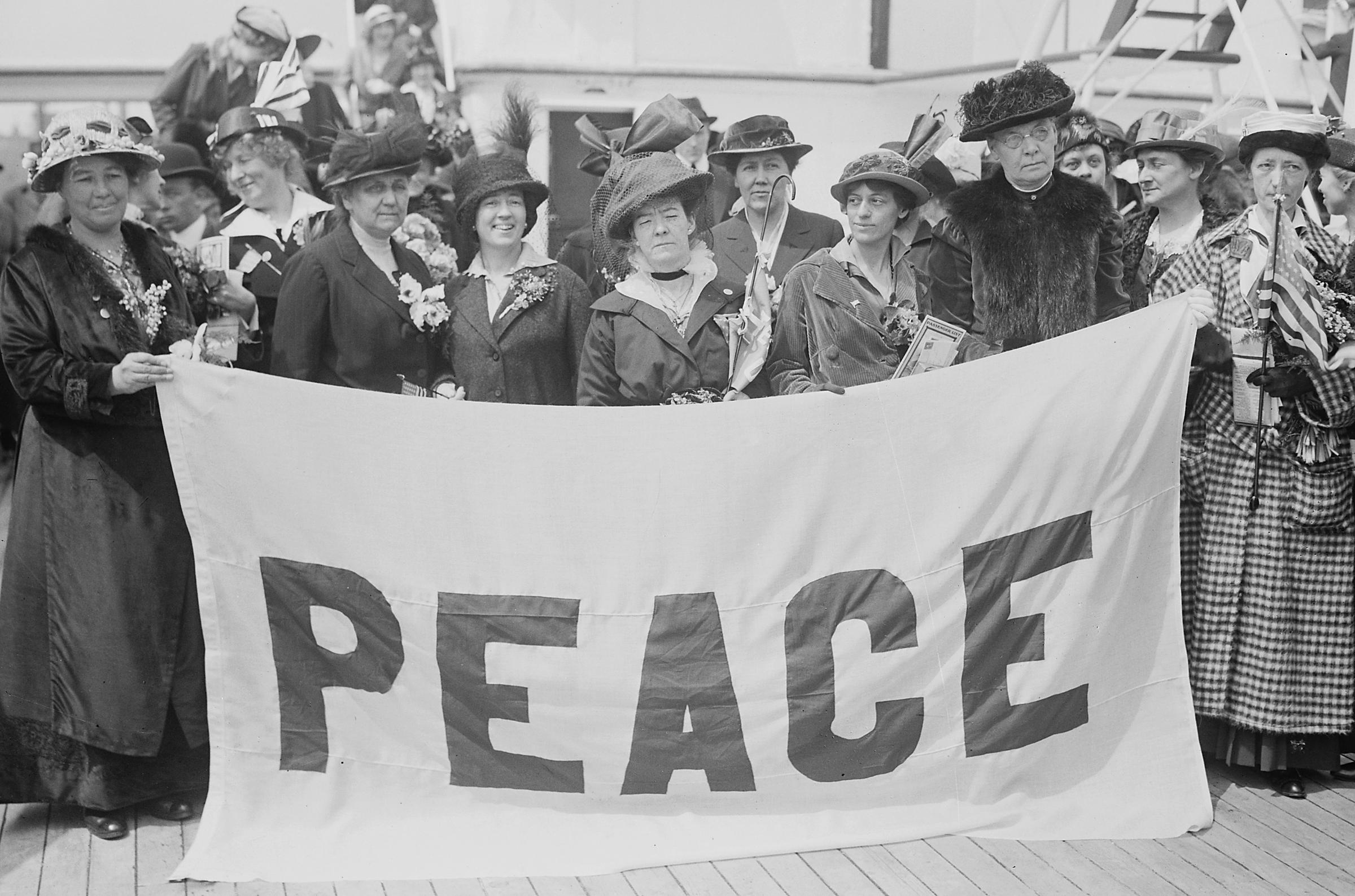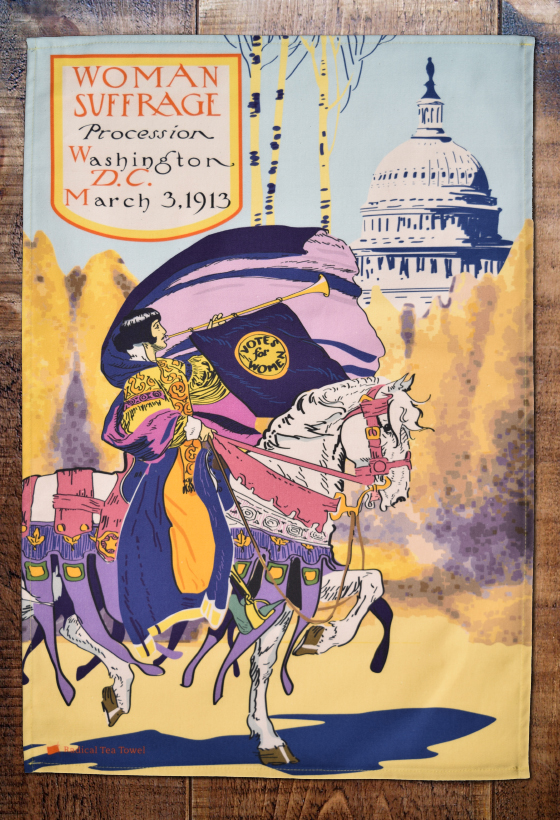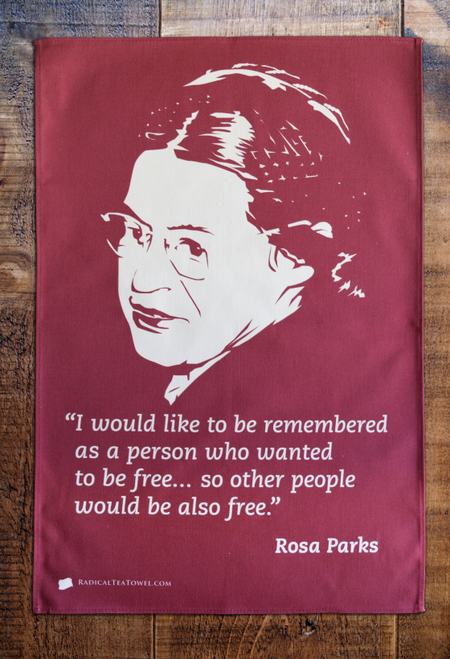Standing Up Against The War Machine: The Story of Kate Richards O'Hare
Posted by Pete on Mar 26th 2019
Kate Richards O'Hare was part of 'The Trinity' of well-known female activists imprisoned for opposing World War I. Their struggle led to reforms in the US prison system and helped spur the creation of the ACLU.
In June 1917, freedom and civil liberty were put on hold indefinitely in the USA.
President Woodrow Wilson had hurled the country into World War I in April, and American boys were already being massacred on the battlefields of western Europe.
At home, the White House began to militarise the domestic scene as well, cracking down on dissent by pushing the infamous Espionage Act through Congress.

Above: Women were among the most vocal dissidents against US involvement in the First World War
Photo credit: US Library of Congress
Suppression via the Espionage Act
On paper, this new law was supposed to stop people from aiding America's foreign enemies and interfering with military recruitment efforts, but its wording was loose enough for judges to lock away anyone who dared criticize the government's war policy.
As the legendary anarchist Emma Goldman, one of the first to be arrested under the Act, protested in court:
“If America has entered the war to make the world safe for democracy, she must first make democracy safe in America.”
Another early victim of this wartime authoritarianism was the American Socialist Party activist Kate Richards O’Hare – born today in 1876.
O'Hare's dive into progressive politics
O’Hare had come to socialist politics through her experience of poverty growing up in Kansas.
In 1887, the combined blow of economic recession and drought forced Kate’s parents to sell their rural homestead and move to Kansas City for work.
Kate’s dad, Andrew, found a job but it was hardly enough. Her memory of “the poverty, the misery, the want, the wan-faced women and hunger-pinched children” in Kansas City stayed with Kate for the rest of her life.
Soon enough, O'Hare was involved in the International Association of Machinists trade union, and soon after that, in 1901, she joined the brand new Socialist Party of America.
O'Hare had a talent for political speeches, and within a decade, she ran for Congress in Kansas. In 1916, she ran again as the SPA's Senate candidate in Missouri.
War came in 1917, and the Socialist Party, under the great Eugene Debs, became the only major party to oppose America's involvement. O’Hare headed up the SPA’s anti-war movement, leading the Committee on War and Militarism.
So when Woodrow Wilson threw the Espionage Act at progressive politics, O’Hare soon enough found herself – like her allies Goldman and Debs – behind bars, sentenced to five years for an anti-war speech in North Dakota.
But at that time, there still wasn’t a single women-only federal prison in the United States.
This was a problem for the federal government because women were well-represented in the socialist and anarchist movements, far more so than in the traditional Democratic and Republican parties.

O'Hare's fight for Civil Liberties
Most of the women imprisoned by the Espionage Act, then, were put in the mixed-gender Missouri State Penitentiary in Jefferson City. Among them were both Emma Goldman and Kate Richards O’Hare.
The prison was a hellish place – “the most wretched and congested prison in the country.”
Inmates were routinely beaten, under-fed, and denied medical treatment. It was a state-managed hive of injustice.
It was also not the smartest place to put a gang of radical women committed to fighting against government oppression.
As inmates, O'Hare, Goldman, and another anarchist, Gabriella Segata Antolini, began to successfully campaign inside the prison for improved conditions. The three Leftists came to be known as ‘The Trinity’.
O’Hare's sentence was commuted in 1920 after a nationwide, progressive campaign for her release, and she promptly spent the next two years demanding – alongside a newly-formed American Civil Liberties Union – the release of all those convicted under the repressive Espionage Act.
Until her death in 1948, along with her continued commitment to socialist politics, O’Hare pushed for drastic reforms to America’s horrific prison system, drawing heavily on her own experience.

Above: O'Hare and her contemporaries would inspire future generations of civil disobedience
This Women's History Month, plenty of remarkable American women who worked for freedom within the law – from Jane Addams to Eleanor Roosevelt – will have had their stories retold, and rightly so.
But just as important, indeed perhaps much more so, are women like Kate Richards O’Hare, Emma Goldman, Alice Paul, and Rosa Parks: those who have stood outside the law during the many moments in American history when ‘legal’ and ‘right’ have not necessarily been one and the same.
Check out our designs honoring Rosa Parks, Alice Paul, Emma Goldman, and other brave progressives
